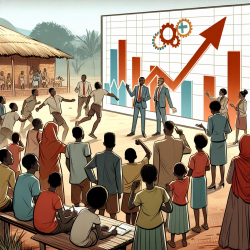Introduction
The recent research article titled "Navigating the Nexus between British Columbia’s Public Consumption and Decriminalization Policies of Illegal Drugs" offers valuable insights into the interplay between drug decriminalization and public consumption policies. This research, focusing on British Columbia's approach, provides a nuanced understanding of the effects of these policies on public health and safety. For practitioners, particularly those in speech-language pathology and related fields, understanding these dynamics can enhance their ability to support children and families affected by substance use issues.
Understanding the Research
The study highlights the complexities of British Columbia's decriminalization policy, which aims to reduce stigma and improve access to treatment for people who use drugs (PWUD). However, amendments like Bill 34, which restricts public drug consumption, may inadvertently reinforce negative perceptions and potentially displace drug use to more dangerous settings. This is particularly concerning for marginalized populations who are disproportionately affected by these policies.
Implications for Practitioners
For practitioners working with children and families, understanding the broader social and policy context of substance use is crucial. Here are some ways practitioners can apply insights from this research:
- Advocacy and Education: Practitioners can advocate for policies that support harm reduction and engage in public education to reduce stigma around substance use. Educating communities about the public health approach to drug use can help shift perceptions and improve support for affected families.
- Interdisciplinary Collaboration: Collaborating with other professionals, including social workers and public health officials, can enhance the support network for children and families. Understanding the intersections of health, social services, and policy can lead to more comprehensive care strategies.
- Focus on Marginalized Populations: Practitioners should be aware of the unique challenges faced by marginalized groups, including higher rates of criminalization and limited access to services. Tailoring interventions to address these disparities can improve outcomes for these populations.
Encouraging Further Research
The research underscores the importance of ongoing evaluation of drug policies and their impacts on public health. Practitioners are encouraged to engage with this research and consider how data-driven insights can inform their practice. Further research can explore the long-term effects of decriminalization and public consumption policies on child development and family dynamics.
Conclusion
Understanding the nexus between drug decriminalization and public consumption policies is vital for practitioners aiming to improve outcomes for children and families. By integrating insights from this research into their practice, practitioners can contribute to more informed, compassionate, and effective support systems.
To read the original research paper, please follow this link: Navigating the nexus between British Columbia’s public consumption and decriminalization policies of illegal drugs.










